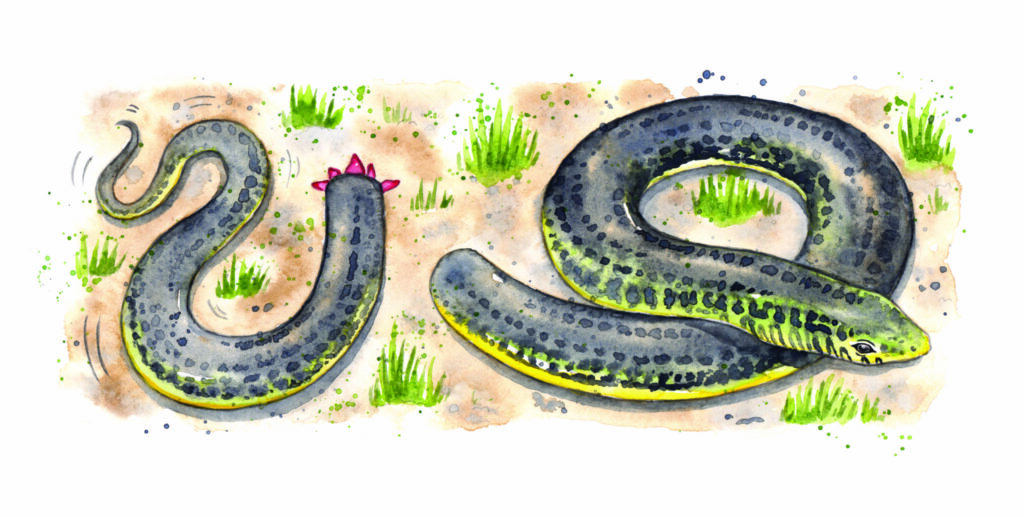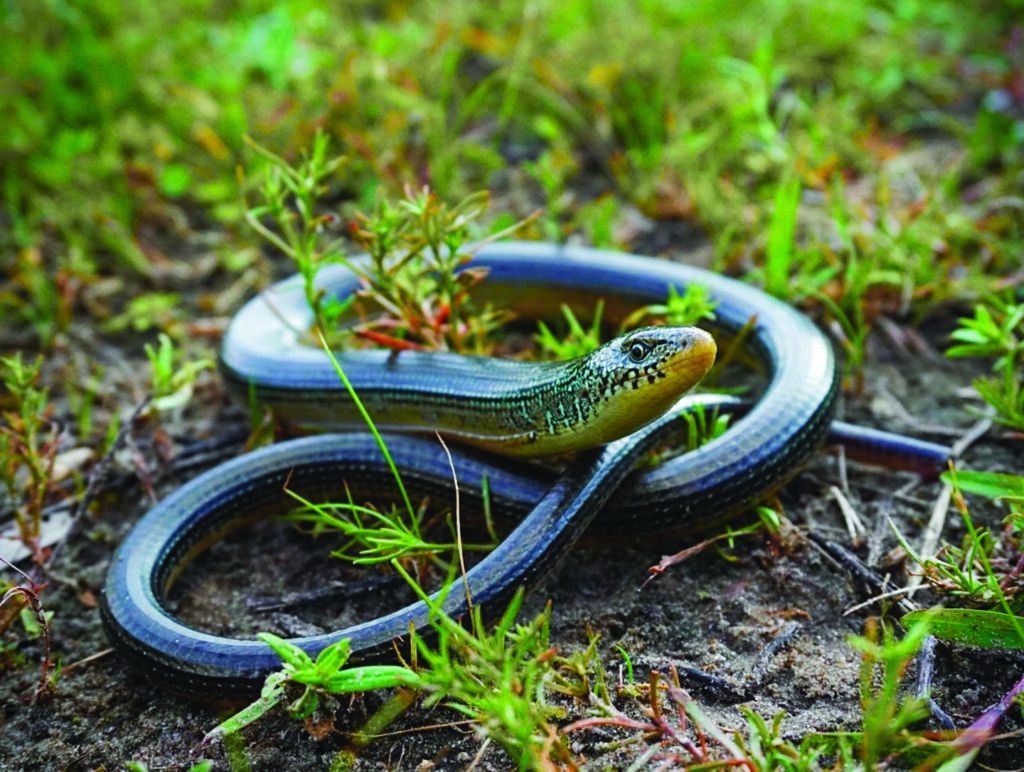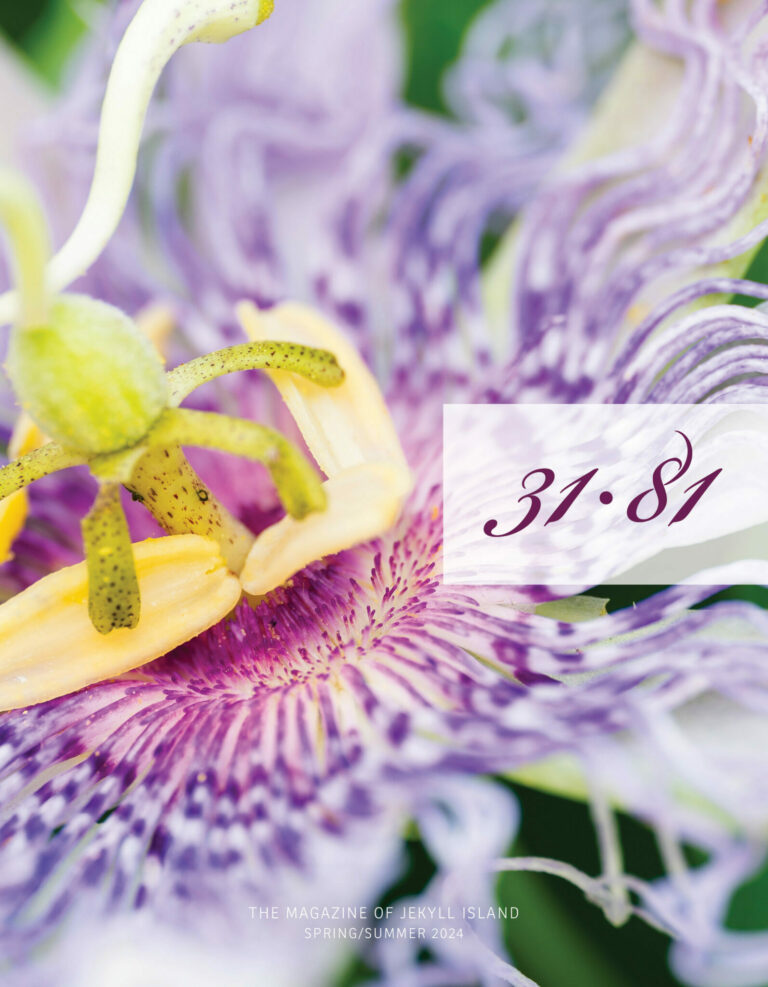Jekyll’s glass lizard is a serpentine curiosity
BY TESS MALONE
Slithering through Jekyll Island’s sandy soils, shrubs, and underbrush, the Eastern glass lizard—the largest lizard in Georgia—is often mistaken, not surprisingly, for a snake. With a legless body and a tail that can grow up to 40 inches long, it looks and moves a lot like a snake.
The glass lizard’s external ear openings and moveable eyelids give it away, though. Look more closely and you can spot even more lizardly characteristics, from the lateral groove running down its green or tan body to a fixed jaw that allows it to swallow prey as wide as its mouth. A glass lizard will eat anything it can fit into its jaws; insects, spiders, worms, crawfish, crabs, rodents, and even smaller reptiles.
Still, it’s that distinctive tail, often twice as long as the head and body combined, that is the glass lizard’s calling card. Perhaps more interesting than its length: The lizard can physically eject its tail, with a kind of a wiggle, at the mere threat of an approaching predator.

Legend has it that the tail breaks off into multiple pieces, but the lizard actually sheds its tail at a single point, producing a sound (if you listen closely) that mimics that of breaking glass, according to Yank Moore, the Director of Conservation for the Jekyll Island Authority. That sleight of tail helps the lizard avoid a plethora of predators that include birds, snakes, raccoons, opossums, and feral cats. The tail eventually grows back, though shorter and less colorful than the original appendage.
The glass lizard calls all of Jekyll Island home, from its beaches to the Historic District. Although active during the day, the glass lizard spends most of its time hidden. The curious and eagle-eyed can often spot the lizards, according to Jekyll Island Authority wildlife technician
Michael Brennan, near Horton Pond or around the unmarked riverfront that locals call Shark Tooth Beach. “If you go for a walk in the morning or evening on a nice day, you could expect to see one,” he says. “It may just be a quick glimpse as they race back into grass, shrubs, or bury themselves in sand.”


